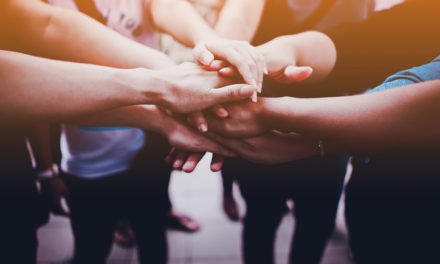
Last week, we wrapped up our series on navigating the Volatile, Uncertain, Complex, and Ambiguous (VUCA) world in which we live. Within this constant complexity, there are many ways to make sense of information available to us.
One doesn’t need to look far to find statistics that purport to explain complex phenomena. Everyone from commentators to op-ed writers to family members arguing over dinner cite statistics as a means to understanding the world around them.
Numbers can tell us a lot, but certainly not everything. They can be collected and analyzed by people with biases and incomplete understandings. They can be twisted or selectively cited to cause harm, with intention or not. They can fail to highlight important differences between groups.
Numbers can tell us a lot, but certainly not everything. They can be collected and analyzed by people with biases and incomplete understandings. They can be twisted or selectively cited. Click To TweetFor instance, this year, Equal Pay Day — cited as how far women must work into the year to make the same as what men made the previous year — was recognized on March 15, which eclipsed the critical fact that this same threshold arrives much later in the year for Black women and other women of color.
In our work, we observe organizations pass over data from employee groups deemed too small according to standards for statistical significance, and challenge them to consider what they may be missing. A related challenge: information drawn from sources such as employee engagement surveys may be based on responses from those with the most time and access to computers while failing to capture insights from those with less access.
The ways in which we contextualize and interpret numbers are as important, if not more so, than the numbers themselves — particularly in the context of complex, intersectional systems of injustices. Click To TweetThe ways in which we contextualize and interpret numbers are as important, if not more so, than the numbers themselves — particularly in the context of complex, intersectional systems of injustices. We at The Winters Group affirm:
- We are experts of our own experiences; this is natural and shapes our personal worldviews.
- The intersections of our identities and access to power are critical to reflect upon and understand.
- While the spaces many of us have been socialized within would often have us believe otherwise, multiple truths can exist at once; there is much to be learned by embracing the possibility of both/and over either/or.
- Storytelling is a powerful tool for social change.
- Through seeking to understand the experiences of others, we can approach understandings of a broader truth, of which our own experiences are one element.
With these understandings in mind, our next feature series, Storytelling Beyond the Numbers, will invite contributing writers to reflect on questions like:
- What truths do your lived experiences affirm that may not be captured by numbers or narratives cited by others?
- What statistics have you seen or heard cited to tell a story that deserves more nuance or unpacking?
- What does power have to do with the stories we commonly see or hear, and those we do not? How does this show up for you?
As always, over the course of this series, we invite you to connect with us on social media to share how #StorytellingBeyondtheNumbers shows up for you and those you care about.
What truths do your lived experiences affirm that may not be captured by numbers? What statistics have you seen or heard cited to tell a story that deserves more nuance or unpacking? Click To Tweet How does #StorytellingBeyondtheNumbers show up for you? Click To Tweet

















